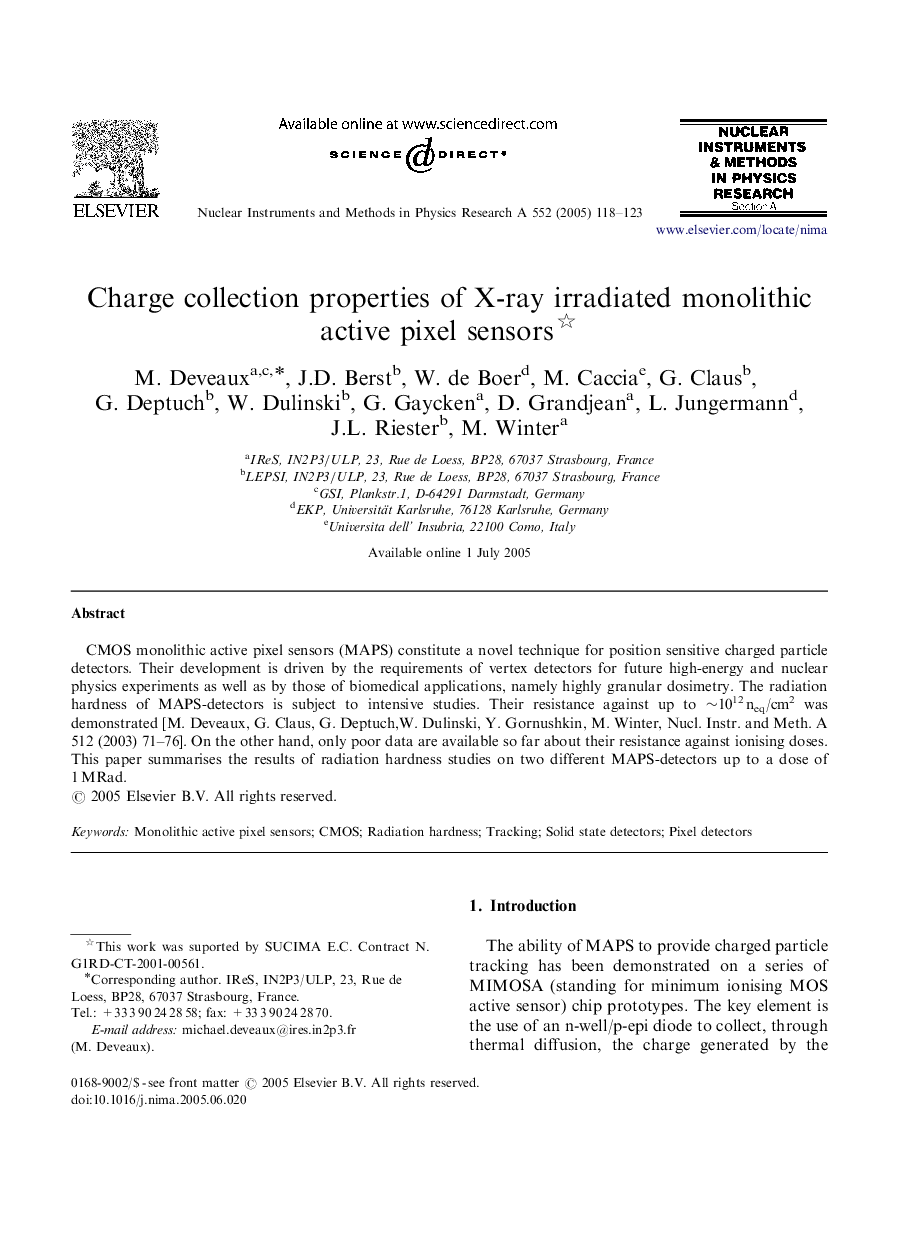| Article ID | Journal | Published Year | Pages | File Type |
|---|---|---|---|---|
| 9845041 | Nuclear Instruments and Methods in Physics Research Section A: Accelerators, Spectrometers, Detectors and Associated Equipment | 2005 | 6 Pages |
Abstract
CMOS monolithic active pixel sensors (MAPS) constitute a novel technique for position sensitive charged particle detectors. Their development is driven by the requirements of vertex detectors for future high-energy and nuclear physics experiments as well as by those of biomedical applications, namely highly granular dosimetry. The radiation hardness of MAPS-detectors is subject to intensive studies. Their resistance against up to â¼1012Â neq/cm2 was demonstrated [M. Deveaux, G. Claus, G. Deptuch,W. Dulinski, Y. Gornushkin, M. Winter, Nucl. Instr. and Meth. A 512 (2003) 71-76]. On the other hand, only poor data are available so far about their resistance against ionising doses. This paper summarises the results of radiation hardness studies on two different MAPS-detectors up to a dose of 1Â MRad.
Keywords
Related Topics
Physical Sciences and Engineering
Physics and Astronomy
Instrumentation
Authors
M. Deveaux, J.D. Berst, W. de Boer, M. Caccia, G. Claus, G. Deptuch, W. Dulinski, G. Gaycken, D. Grandjean, L. Jungermann, J.L. Riester, M. Winter,
